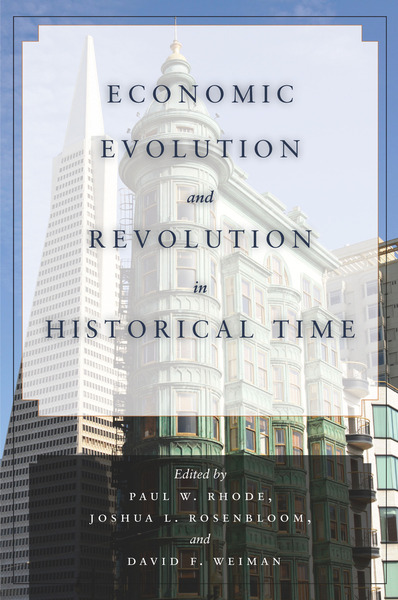
2011
488 pages.
$85.00
Hardcover ISBN: 9780804771856
Ebook ISBN: 9780804777629
This book challenges the static, ahistorical models on which Economics continues to rely. These models presume that markets operate on a "frictionless" plane where abstract forces play out independent of their institutional and spatial contexts, and of the influences of the past. In reality, at any point in time exogenous factors are themselves outcomes of complex historical processes. They are shaped by institutional and spatial contexts, which are "carriers of history," including past economic dynamics and market outcomes.
To examine the connections between gradual, evolutionary change and more dramatic, revolutionary shifts the text takes on a wide array of historically salient economic questions—ranging from how formative, European encounters reconfigured the political economies of indigenous populations in Africa, the Americas, and Australia to how the rise and fall of the New Deal order reconfigured labor market institutions and outcomes in the twentieth century United States. These explorations are joined by a common focus on formative institutions, spatial structures, and market processes. Through historically informed economic analyses, contributors recognize the myriad interdependencies among these three frames, as well as their distinct logics and temporal rhythms.
About the authors
Paul W. Rhode is Professor of Economics at the University of Michigan and serves as a Research Associate at the National Bureau of Economic Research. Joshua L. Rosenbloom is Professor of Economics and Associate Vice Provost for Research and Graduate Studies at the University of Kansas. He is a Research Associate at the National Bureau of Economic Research. David F. Weiman is Alena Wels Hirschorn '58 Professor of Economics at Barnard College, Columbia University. He is an affiliated member of the History Department, and a Faculty Fellow of the Institute for Social and Economic Research and Policy at Columbia University.
"Paul Rhode, Joshua Rosenbloom, and David Weiman . . . start with a tremendous advantage in that the scholar they honor, Gavin Wright, is one of the true greats in [economics]. Wright's research is remarkable for both its scope and its diversity of method, and the editors have put together a volume that shares these qualities."
—Carolyn M. Moehling, EH.Net
"This is a superb collection of studies, giving strong evidence on the role of history in determining the evolution of the economy, in particular the way present contours are influenced by specific elements of past history.This work shows the ways in which economic theory must demonstrate the dependence of the economy on the past, as well as the ways in which theory has illuminated history."
—Kenneth J. Arrow, Stanford University, recipient of the Nobel Memorial Prize in Economics
"This volume constitutes a bold and refreshing contribution to the field of economic history. The high quality essays included are as exciting as they are important."
—Peter A. Coclanis, University of North Carolina at Chapel Hill
"A wonderfully diverse collection of first-rate articles by some of the best economic historians around."
—Joel Mokyr, Northwestern University